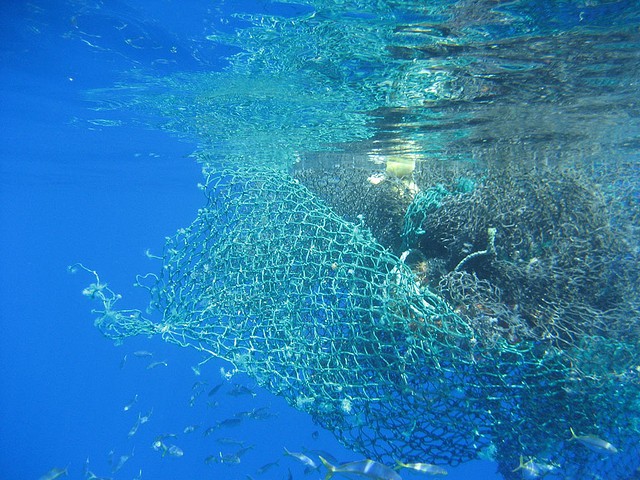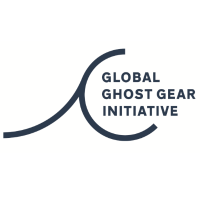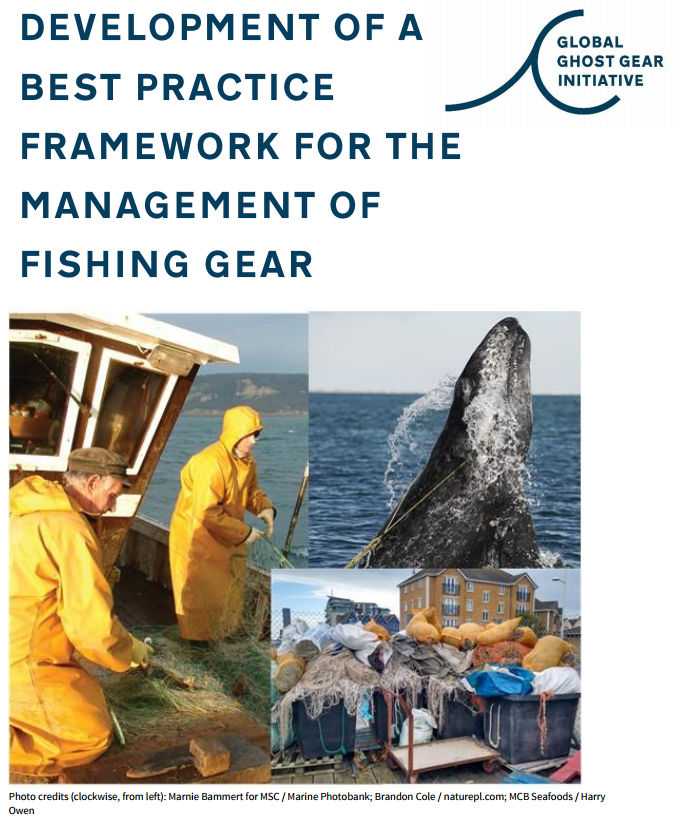GGGI Launches Practical Guidance for the Seafood Industry to Reduce Marine Litter

 07 April 2017, Location – A highly anticipated best practice framework on the management of fishing gear developed by the Global Ghost Gear Initiative (GGGI) launched today for an industry-wide consultation. The framework provides the seafood industry - from port operators to seafood companies - with practical steps to decrease the abundance and effects of ghost gear within their respective industries.
07 April 2017, Location – A highly anticipated best practice framework on the management of fishing gear developed by the Global Ghost Gear Initiative (GGGI) launched today for an industry-wide consultation. The framework provides the seafood industry - from port operators to seafood companies - with practical steps to decrease the abundance and effects of ghost gear within their respective industries.
Developed with input from over 40 GGGI participants from across the industry, the best practices framework is the first in the world to recommend solutions and approaches to combat ghost fishing across the entire supply chain.
“This is a big step towards implementing more sustainable fishing practices globally,” says Guy Dean, Vice President at Albion Fisheries Ltd., a GGGI participant. “Ghost gear is a very real impediment to sustainable seafood. Until now, a comprehensive approach to combatting ghost gear with recommendations for all fishery stakeholders, was lacking. The best practice framework provides just that. We’re now looking for feedback on the framework so we can adopt elements of these best practices into our business activities.”
 Ghost gear, sometimes called abandoned, lost and discarded fishing gear, is fishing equipment which has been abandoned or lost and is now causing harm to fisheries and ocean ecosystems. Each year an estimated 640,000 tons of fishing gear is lost or abandoned in oceans, estuaries, and bays. Whether intentionally discarded or accidentally lost, this gear sticks around for hundreds of years and it catches and wastes targeted marine species, entangles marine wildlife, adds to ocean waste, and presents additional expenses and hazards for fishermen and marine communities. “Minor improvements to fishing gear and fishing policies can significantly reduce the impact of ghost gear on ecosystems, livelihoods and marine animals,” says Lynn Kavanagh, the Campaign Manager for Oceans and Wildlife at World Animal Protection, a GGGI participant.
Ghost gear, sometimes called abandoned, lost and discarded fishing gear, is fishing equipment which has been abandoned or lost and is now causing harm to fisheries and ocean ecosystems. Each year an estimated 640,000 tons of fishing gear is lost or abandoned in oceans, estuaries, and bays. Whether intentionally discarded or accidentally lost, this gear sticks around for hundreds of years and it catches and wastes targeted marine species, entangles marine wildlife, adds to ocean waste, and presents additional expenses and hazards for fishermen and marine communities. “Minor improvements to fishing gear and fishing policies can significantly reduce the impact of ghost gear on ecosystems, livelihoods and marine animals,” says Lynn Kavanagh, the Campaign Manager for Oceans and Wildlife at World Animal Protection, a GGGI participant.
“The framework presents 10 stakeholder groups with recommended approaches to combat ghost gear, each with an accompanying case study on how this has been achieved in practice. These include net recycling programs, derelict gear removal initiatives, and fishing management policy adjustments, among others. We really hope this will help the broader industry see change is both possible and practical.”
The draft framework is currently available for review and feedback on the GGGI website before it is finalised and adopted later this year. GGGI is working with Ocean Outcomes (O2) to seek feedback from all fishery stakeholders affected by ghost gear. A series of webinars will also be held.
To participate in a webinar or learn more about the best practice framework visit www.ghostgear.org.
END
Contacts:
Kai Akram
Global Media Manager at World Animal Protection
[email protected]
Perry Broderick
IT/Communications Manager, Ocean Outcomes
[email protected]
About the Global Ghost Gear Initiative: Founded in 2015 by World Animal Protection, the Global Ghost Gear Initiative (GGGI) is a cross-sectoral alliance committed to driving solutions to the problem of lost and abandoned fishing gear (ghost gear) worldwide. The GGGI aims to improve the health of marine ecosystems, protect marine animals, and safeguard human health and livelihoods by working globally and locally to build evidence, defining best practices and informing policies, and catalysing and replicating solutions. Members include TriMarine, Sainsbury’s, Young’s Seafood, Northern Prawn Fisheries, and the International Pole and Line Foundation. As part of the alliance, Project AWARE contributes ghost gear data reported by Dive Against Debris® volunteers, helping build evidence of the issue to define best practices and inform policy change.



